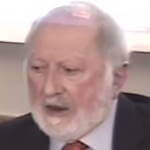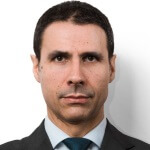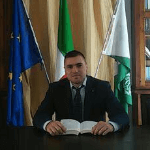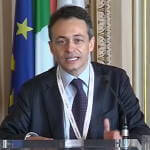Director

Prof. Raffaele Chiarelli
Mission
The Department of Law and Political Science (LAPS) welcomes faculty members and students who are committed to juridical, political, historical, economic and sociological matters.
Our mission is to foster interdisciplinary research, critical analysis and an understanding of political life in an increasingly globalized world.
The Departments aims at covering important topics including legislative systems, legitimacy and social inclusion, parties and elections, security and immigration, law, or political theory, providing students the opportunity for in-depth study of the circulation, dynamics, and legitimization of political power.
Research Areas and Objectives
LAPS aims at carrying out private and public research projects, integrating these activities with official documentation.
Research Fields:
Law
- Cultural goods;
- Security and Immigration;
- New social values and fundamental rights;
- Administrative Law;
- EU and Constitutional rules on bank recovery and resolution;
- Crisis of the principle of private autonomy;
- Neuroscience and human empowering;
- The taxability principle and the metamorphosis of the types of offence: associative offences;
- Regulation of maritime state concessions for touristic and hotel purposes;
- European courts and iura novit curia final appellate jurisdiction in the Italian law.
Political Science
- Democratic Theory;
- Legitimacy and social inclusion;
- The End of the National State;
- European Political Space;
- The Great War.
Interdisciplinary Projects
- Crisis and Utopia in the contemporary world;
- Rise of populism in the European societies;
- New assets of the Italian political power.
As concerns Previous Experiences in Research Projects, we joined i.e. Interdisciplinary Atlas of Utopia (FIRB 2012), Technocracy, and populism as mirror pathologies of contemporary democracy (PRIN 2015).
Director

Prof. Alessandro Gennaro
Mission
The Department of Economics and Business Science (DSEA) welcomes faculty members and students, who are committed to teaching and studying economic theories and managerial sciences, contributing to the wide range of forces that shape our society.
The Department’s mission is to provide stimulating multi-disciplinary research projects, ensuring high-quality research activities and identifying new fields of study.
DSEA encourages critical thinking skills and promotes the use of analytical tools to understand the most important current economic and social issues, adopting economic theories and models, as well as interpreting empirical and historical evidence to advance strong personal and professional outcomes.
DSEA also coordinates scientific research based on entrepreneurial behaviors, on firms’ organization and performances, on regulation and supervision of financial markets and on international business law.
DSEA organizes PhD programs, MBAs, graduate schools and master classes, seminars and conferences, combining academic research with specific professional skills and consulting activities for private companies and public institutions.
Research Areas and Objectives
DESEA focuses on the following economic research fields:
- Economic theory and models (Economic policies of the European Union; Global economy; Economics of Infrastructure and Transport; Geo-political economics);
- Corporate governance and business management (Ownership structure and corporate governance systems; Intellectual capital and business performance; Internationalization of firms and “country of origin” effect; Financial management and financing policies; Business valuation);
- Financial markets and institutions (Financial systems analysis; Banking systems in emerging countries; Economics and management of Financial Intermediaries; Micro-finance; Financial regulation and supervision; Institutional investors and M&A; Risk management);
- Business Law (International business law; Corporate default and Insolvency; Financial market law; Banking law and banking crises);
- Mathematics and statistics for economic decisions (Stochastic processes in finance and insurance; Models for economic forecasting and economic behaviors; Geo-statistic and geo-referencing; Data-collection and data-analysis).
As concerns the Previous Experiences in Research Projects, members of DSEA have been involved in national and international research projects. The DSEA established scientific partnerships with research institutes and professional associations that operates in the fields of interest of the Department.
Director

Prof. Tommaso Valentini
Mission
The Department of Human Sciences welcomes faculty members and students who have a strong predisposition towards humanistic disciplines.
The Department’s mission is to provide a wide range of interdisciplinary research networks, collaborating, at national and international level, with universities and top-class research centers. This transdisciplinary structure encourages and maximizes the quality and scientific productivity of the Department’s research activities, an expertise and excellence that produced over 800 scientific publications in Italy and abroad.
Research Areas and Objectives
The Department promotes and coordinates the research activities in the following “macro-areas of research”:
- Humanities;
- Linguistic Sciences;
- Social Sciences;
- Psychological Sciences;
- Education Sciences;
- Philosophical Sciences.
The Department of Human Sciences purports research activities to achieve institutional objectives, these include:
- Research and experimentation activities
- Collaborates with national and international research centers, to promote, coordinate and develop, individual and group studies and research in the various scientific-disciplinary sectors and six «macro-areas of research» of competence, including :
- Humanities;
- Linguistic sciences area – Linguistic Sciences;
- Social Sciences;
- Psychological Sciences;
- Education Sciences;
- Philosophical Sciences.
- Promotes and coordinates a wide network of research collaborations with universities and research centers of excellence, in Italy and abroad, with interdisciplinary partnerships at national and international level;
- Disseminates the results of study and research activities, with adequate documentation and information activities;
- Promotes, develops and manages the publication of studies, articles, essays, volumes and research of scientific interest;
- Organizes seminars, conferences, workshops and initiatives of a scientific and cultural nature, in collaboration with universities and research centers in Italy and abroad.
- Collaborates with national and international research centers, to promote, coordinate and develop, individual and group studies and research in the various scientific-disciplinary sectors and six «macro-areas of research» of competence, including :
- Third mission:
- The Department operates in the sphere of the third mission, favoring the direct application, exploitation and use of knowledge to contribute to the social, cultural, scientific and economic development of contemporary society.
Alongside the top-class research, a central strategic objective of the Department is to implement the challenge of the third mission, which allows a free and open confrontation with cultural life, in order to respond to vital needs for a professional, social, civil and democratic growth of contemporary society.
- The Department operates in the sphere of the third mission, favoring the direct application, exploitation and use of knowledge to contribute to the social, cultural, scientific and economic development of contemporary society.
- Training activities:
- Promotes, coordinates and implements a program of updating and continuing education on the specific cultural issues of the Department;
- Promotes research doctorate projects in coordination with other University facilities;
- Promotes teaching programs in an educational context that meet the qualification and training needs of highly specialized professional profiles;
- Promotes training in areas of innovative scientific and disciplinary research, including through specialization courses, bachelor degree and post-graduate degree (Master di primo e secondo livello) and the granting of post-graduate scholarships and research doctorates.
Given these points, the Department of Human Sciences (Human Sciences) focuses on a multidisciplinary scientific approach that translates in:
- A research community able to dialogue with the problems and emerging issues of contemporary society. The goal is to share a strategy, a methodology and a research network that enhance the different disciplinary logic to promote research activities and areas of interest in terms of investigation, teaching and professional creation.
- A training offer anchored to the progress of the most qualified scientific research, to the reference professional contexts and updated at national and international level.
The various disciplines and the different scientific-disciplinary sectors contribute to support and promote an innovative educational and training offer, aimed at enhancing disciplinary knowledge and methodological skills to build concrete professional environments. Given the contemporary cultural, social and economic scenario, influenced by the technological and scientific transformation, the offer undergoes constant updates, to meet the professional and individual demands.
The multimedia (methods of) teaching adopted by Guglielmo Marconi University platform favors the use of active methodologies that involve users in the processes of knowledge generation in a participatory, creative and collaborative dimension. For design and audiovisual production and multimedia activities, the Department avails of the Multimedia Production Center of the Guglielmo Marconi University.
Director

Prof. Gabriele Arcidiacono
Mission
In the constantly evolving world, we have to face great challenges, which are aimed at satisfying social, health, economic, and energy needs on the one hand, and on the other, require us not to compromise the development of new generations and the environment.
This vision is based on three foundations, which must be considered in the developed design solutions:
Intelligence
AI, IoT, Big Data and ultra-broadband communications networks are increasingly changing the economy and society. Combining the development of robots and intelligence in machines (which is becoming more and more pervasive) with brain functions and social development.
Sustainability
Every project, every development, every technology must be sustainable not only economically but also for the environment. That is, it must be able to keep the balance among people and between people and the environment.
Trustiness
People need to have confidence in the tools they use on a daily basis and at work. Drones, autonomous vehicles and software on devices must be transparent to the person, aiming at comfort and quality of life. Even the information retrieved online and other services such as education and health must be transparent and not guided by different logics.
Research Areas and Objectives
The Department of Engineering Sciences is the reference structure of the Guglielmo Marconi University, which is responsible for the study and development of technologies aimed at promoting the evolution of the organizations through the three concepts of Intelligence, Sustainability and Trustiness.
To achieve these objectives, the Department uses transversal skills based on basic research in physics and mathematics, industrial, energy and civil engineering and related to information technologies. The research areas in which the Department operates directly are:
Energy and Mobility: design and development of advanced technologies for the exploitation of renewable energies; effective use of energy carriers and energy conversion with high efficiency and reduced environmental impact; analysis and development of innovative solutions for motor vehicle traction systems and related industrial processes.
Information technology and Telecommunications: performance and design of wireless (LTE, 5G, 6G and Internet of Things) and wired (Digital Subscriber Line, G.fast/G.mgfast, optical fibers) telecommunications systems; study and design of intelligent systems in different application domains (Digital Humanities, Medicine, IoT) through knowledge engineering methods (Machine Learning, Natural Language Processing, information retrieval and recommender system).
Mathematics and Physics: Physical-Mathematical Modeling of quantum systems on curved spaces; General Relativity; Cosmology; Quantum Gravity; Quantum mechanics applied to point interactions in different dimensions; Experimental and theoretical activity of high energy and radiation physics.
Mechanics and Technological Processes: advanced methods of product design and development (Axiomatic Design, Design for Six Sigma, TRIZ); applications related to innovative technologies and materials for the industrial context (Smart Materials, Coatings, Additive Manufacturing); innovative methodologies applied to the areas of Reliability, Quality and Safety; statistical approach applied to engineering in collaboration with the Interuniversity Research Center StEering – Statistics for Engineering; mechanical behavior of materials.
Management processes: innovative methodologies for the improvement and optimization of business processes, organizations and business strategy (Lean Six Sigma); approaches and tools for production planning and control, advanced systems for data science and the use of digital infrastructures and IoT; approaches for the study of times and methods; systems and methods for Healthcare monitoring and management of health processes.
Sustainability, Environment and Territory: solutions, technologies and strategies aimed at socio-economic and environmental sustainability of the use of resources, the development of infrastructures and innovation in complex systems (Smart city, Carbon neutral economy, Circular economy); Technologies for environmental analysis, management and monitoring and integration of knowledge between the ecological and industrial fields; Analysis, planning and territorial and urban design, environmental and landscape design, definition of tools for the creation of the Smart City.
Civil Structures and Geotechnics: modeling and structural analysis for the design of new buildings and reinforcement, consolidation, control and seismic protection of existing buildings; experimental analysis of the mechanical behavior of natural soils in static and seismic conditions, design and verification of geotechnical works, analysis of the stability conditions of natural slopes and artificial embankments, liquefaction risk and soil consolidation and reinforcement techniques.
